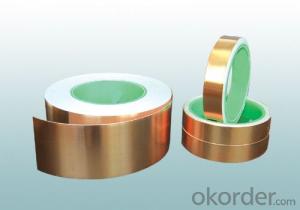When it comes to roofing, insulation is a vital component that not only adds to the energy efficiency of a building but also provides a comfortable living environment. However, without proper fasteners, the insulation can shift, sag, or even fall, leading to potential damage and costly repairs. In this article, we’ll explore the world of roofing insulation fasteners, offering insights into how they work, the different types available, and tips for choosing the right ones for your project.
The Importance of Roofing Insulation Fasteners
Roofing insulation fasteners are the unsung heroes of the construction world. They play a crucial role in securing insulation materials to the roof deck, ensuring that they stay in place and function effectively. These fasteners are designed to withstand harsh weather conditions, including heavy winds, rain, and snow, without compromising the integrity of the insulation.
Types of Roofing Insulation Fasteners
There’s a wide variety of roofing insulation fasteners on the market, each with its own set of benefits and ideal applications. Here are some of the most common types you might encounter:
– Nails: Traditional and cost-effective, nails are a popular choice for attaching insulation. They are easy to use and widely available.
– Screws: Offering more holding power than nails, screws are a great option for securing insulation in areas prone to heavy winds or where the insulation material is particularly thick.
– Adhesives: For a more discreet approach, adhesives can be used to bond insulation to the roof deck. They are ideal for situations where you want to avoid visible fasteners.
– Mechanical Fasteners: These include clips, plates, and other devices that mechanically secure the insulation in place. They are often used in combination with other fastening methods for added stability.
Factors to Consider When Choosing Fasteners
Choosing the right fasteners for your roofing insulation project involves considering several factors:
– Material Compatibility: Ensure the fasteners you choose are compatible with the type of insulation and roof material you’re working with.
– Weather Resistance: Look for fasteners that can stand up to the elements without corroding or degrading.
– Load Capacity: The fasteners should be able to handle the weight of the insulation and any additional loads that might be placed on the roof.
– Ease of Installation: Some fasteners are easier to install than others, which can save you time and effort on the job.
– Aesthetics: If the appearance of the roof is a concern, consider fasteners that blend in with the roof material or are less visible.
Installation Tips for Roofing Insulation Fasteners
Proper installation of your fasteners is key to ensuring the longevity and effectiveness of your insulation. Here are some tips to keep in mind:
– Start at the Top: Begin your installation at the highest point of the roof and work your way down to prevent the insulation from shifting as you work.
– Space Evenly: Distribute fasteners evenly across the insulation to ensure it is securely held in place.
– Follow Manufacturer’s Guidelines: Always follow the manufacturer’s recommendations for spacing and installation techniques.
– Check for Obstructions: Before installing fasteners, make sure there are no obstructions in the way, such as wires or pipes, that could interfere with the installation process.
– Use the Right Tools: Having the right tools for the job will make the installation process smoother and more efficient.
Maintenance and Inspection of Roofing Insulation Fasteners
Regular maintenance and inspection of your roofing insulation fasteners can help prevent issues down the road. Here’s what you should do:
– Inspect Annually: Make it a habit to inspect your fasteners at least once a year for signs of wear, corrosion, or damage.
– Clean Regularly: Keep the area around the fasteners clean to prevent debris from causing damage or interfering with the fasteners’ function.
– Replace as Needed: If you find any damaged or corroded fasteners, replace them promptly to maintain the integrity of your insulation.
– Monitor Weather Conditions: Be aware of extreme weather conditions that could impact the fasteners’ performance and inspect them more frequently if necessary.
The Future of Roofing Insulation Fasteners
As technology advances, we can expect to see new innovations in roofing insulation fasteners. These may include:
– More Durable Materials: Fasteners made from materials that are even more resistant to weather and corrosion.
– Improved Holding Power: Innovations that allow fasteners to hold insulation more securely without damaging the material.
– Eco-Friendly Options: Fasteners that are made from sustainable materials or have a lower environmental impact.
– Smart Fasteners: With the integration of sensors and other technologies, fasteners could become part of a smart roofing system that monitors and adjusts to conditions automatically.
In conclusion, roofing insulation fasteners are an essential part of any roofing project. By understanding the different types, considering the factors for choosing the right ones, and following proper installation and maintenance practices, you can ensure that your insulation stays securely in place and performs its job effectively. As the industry evolves, we look forward to the advancements that will make our roofing systems even more efficient and reliable.

